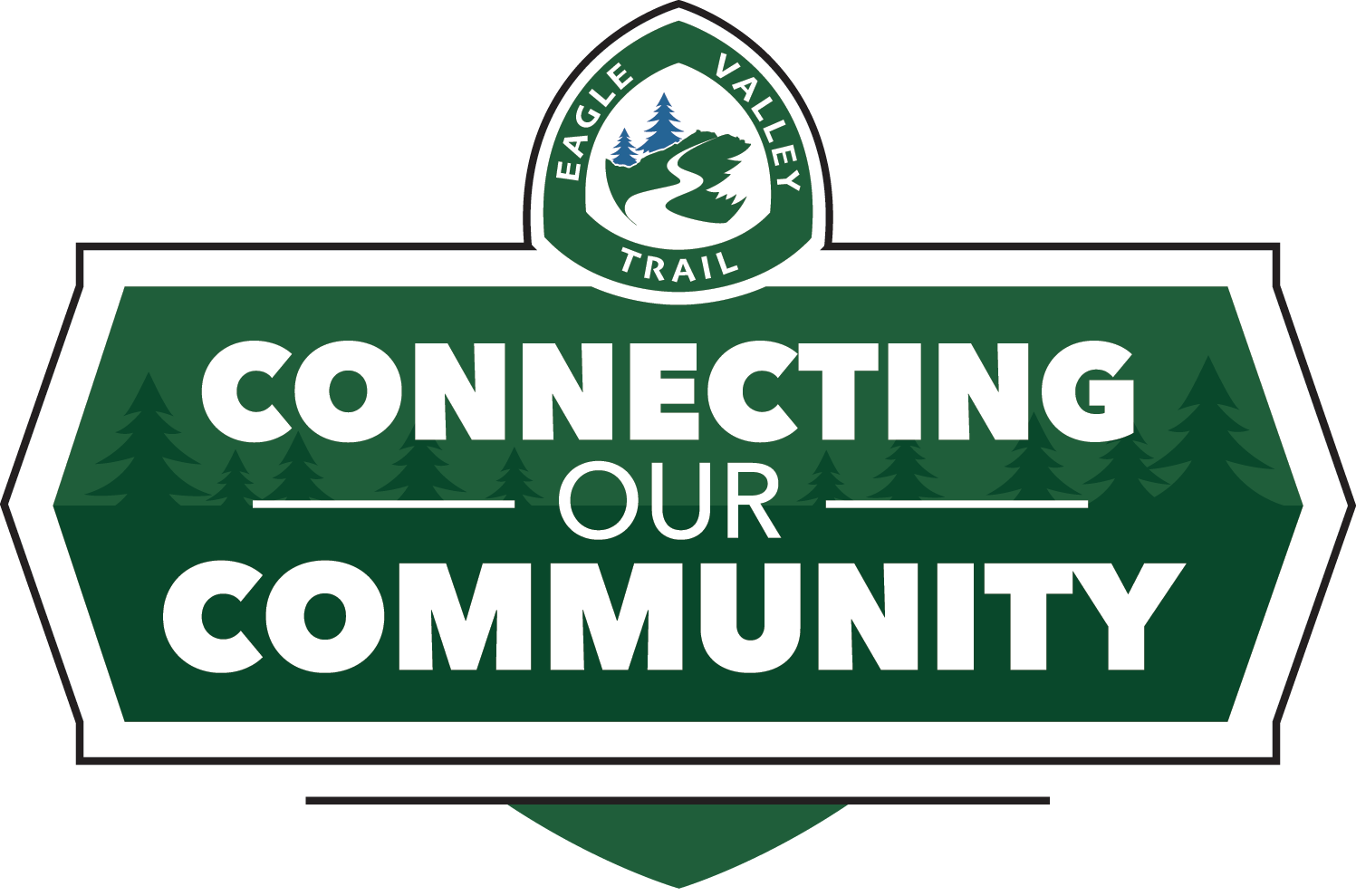FAQ
-
How long is the Eagle Valley Trail trail?
When completed, it will be approximately 63 miles.
-
What activities can I do on the Eagle Valley Trail?
Everything from leashed furry friends to e-bikes are allowed (in most areas). Just make sure that however you’re enjoying the EVT, you’re doing so safely.
-
When will the trail be completed?
The trail is projected to be completed by 2024.
-
What sections of the trail still need to be completed?
There are four remaining sections of trail to be completed:
Dotsero to Gypsum Duck Ponds (1.7 miles)
Horn Ranch to Edwards (7.5 miles)
EagleVail to Dowd Junction (1.5 miles)
Minturn Connection (1.3 miles)
-
What changes are being planned for the Vail Pass section of the Eagle Valley Trail?
With CDOT’s Vail Pass project, there will be improvements made to the Eagle Valley Trail, including re-routing the trail away from the highway in some areas and improving the section referred to as “The Wall”.
-
What other trails does the Eagle Valley Trail connect to?
The Eagle Valley Trail connects to the paved trail network in Summit County to the east and to the trail network in Garfield County to the west. The Garfield County trails are connected to a paved trail network in Pitkin County.
-
How is the Eagle Valley Trail funded?
ECO Trails is funded by a .5% tax for transit
ECO Trails receives 10%
ECO Transit receives 90%
Approximately $750,000/year is allocated for ECO Trails
Most funds are spent on operations and maintenance
-
How much is Eagle County Government contributing to complete the Eagle Valley Trail?
In August 2021, Eagle County sold Certificates of Participation (COP) with a low interest rate of 1.98% to secure an additional $22 million toward the completion of the Eagle Valley Trail. This investment is intended to jump start and energize fundraising efforts to raise the additional funds needed to complete the remaining trail segments.
-
What is a Certificate of Participation?
In lieu of issuing bonds, or using another form of long-term debt, a government entity such as Eagle County may use a form of lease-purchase agreement called certificates of participation (COPs) to finance the construction of its new facilities. A certificate refers to an investor's proportionate interest in the county's lease payments. COPs give Eagle County the flexibility to build or maintain capital assets (i.e. the Eagle Valley Trail) even when funds are not available to pay for projects on a pay-as-you-go basis.
-
Why does my donation go to the Mountain Recreation Foundation?
Mountain Recreation Foundation is serving as the fiscal sponsor to process donations for the Eagle Valley Trail project. Mountain Recreation Foundation is a registered 501(c)3 meeting the IRS compliance and documentation requirements for donors to the Eagle Valley Trail project.
-
What fees are added to my donation?
Typical of credit card transactions, there is a minimal bank fee of about 3%. Donors can choose to offset the bank fees in their donation. There is no service fee for donations made by physical check. There is an administration fee charged by Mountain Recreation Foundation to the Trail, not charged to the donor, of 2% of the donated amount.
-
Why does the Mountain Recreation Foundation charge fees for donating toward the Eagle Valley Trail?
Fees charged by Mountain Recreation Foundation cover their overhead costs for the administration of the Eagle Valley Trail project. Two percent is a very small percentage for a fiscal sponsor to charge for this service to an organization.
